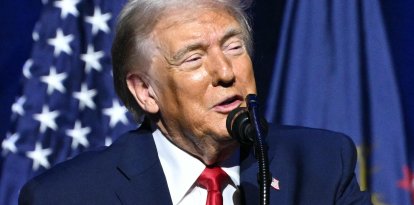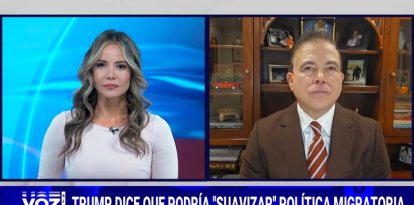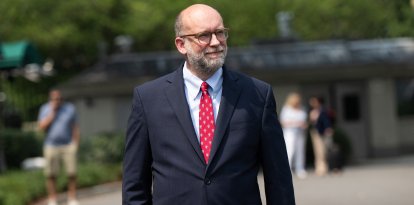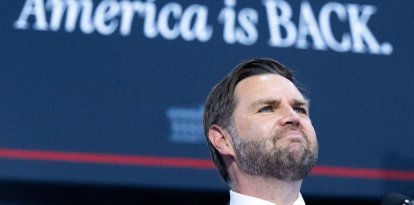Treasury Secretary mystery solved: Trump picks investor Scott Bessent
The president-elect made the announcement on social media, where he described him as "one of the World's foremost International Investors and Geopolitical and Economic Strategists."

Bessent was a key economic adviser to the Trump campaign/Aaron Richter
Donald Trump announced the nomination of Scott Bessent as Treasury secretary on his social networks. The Treasury secretary is one of the most important positions for the government, given that they are in charge of designing and executing economic policy together with the president. Bessent, a big Republican donor throughout the presidential election, recently defended the tariffs of Trump in an op-ed,
"Scott is widely respected as one of the World's foremost International Investors and Geopolitical and Economic Strategists. Scott's story is that of the American Dream," Trump wrote in a statement.
Bessent, 62, is the founder of hedge fund Key Square Management, an investment management firm that in 2023 had $600 million in assets. He is highly respected in both the business world and academia.
"My Administration will restore Freedom, Strength, Resilience, and Efficiency to our Capital Markets. We will reinvigorate the Private Sector, and help curb the unsustainable path of Federal Debt," Trump added in the missive.
Who is Scott Bessent?
Born in South Carolina and a graduate of Yale University, he was a key adviser to the Trump campaign on economics, as well as a major donor. Indeed, he donated $3 million to Trump and other Republican causes throughout the campaign. In a dialogue with Forbes, he even described the now president-elect as "very sophisticated in economic policy," in contrast to the "economically illiterate" Kamala Harris.
Bessent also worked for George Soros for many years. He joined Soros Fund Management (SFM) in 1991 and remained there until 2000, becoming head of European allocation. After five years as a professor of economic history at Yale, he returned to SFM in 2011 as chief investment officer. He stayed until 2015 and left for good to found the aforementioned hedge fund.
Since Trump defeated Harris on Nov. 5, Bessent was among the leading candidates for Treasury secretary. Alongside him were Kevin Warsh, a member of the Federal Reserve Board of Governors, Marc Rowan, the CEO of Cantor Fitzgerald and Howard Lutnick, today the president-elect's pick to be secretary of Commerce. Bill Hagerty, Republican senator from Tennessee, was also among those considered by Trump for the post.
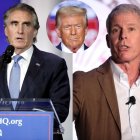
Politics
Las elecciones potentes de Trump: Doug Burgum y Chris Wright para liderar Interior y Energía
Verónica Silveri Pazos

In defense of tariffs
By way of foreshadowing, Besent recently published an op-ed on Trump's economic agenda.
"Prior to the 16th Amendment, which authorized the individual income tax, tariffs had been one of the federal government’s chief sources of funding. Our first Treasury Secretary, Alexander Hamilton, also happened to be America’s original proponent of tariffs. But after World War II, a consensus coalesced around multilateral tariff disarmament. The promise of this new free-trade consensus was that any economic dislocations caused by globalization would be offset by increased prosperity for all. In the U.S. especially, this conviction was accompanied by a faith that free trade would lead to political freedom in other countries, such as Communist China. Neither of these predictions has proven to be correct," he wrote on Fox News.
"Critics of tariffs argue that they will increase the prices Americans pay for imported goods. This, reduced to absurdity, was the Harris campaign’s "sales tax" argument. But the facts argue against this. President Trump’s first-term tariffs did not raise the prices of the affected goods, despite predictions back then that the tariffs would prove inflationary. Indeed, not only was there no discernible rise in inflation during the last round of tariffs, but the Fed’s preferred measure of inflation actually declined. Used strategically, tariffs can increase revenue to the Treasury, encourage businesses to restore production and reduce our reliance on industrial production from strategic rivals," added Bessent.













